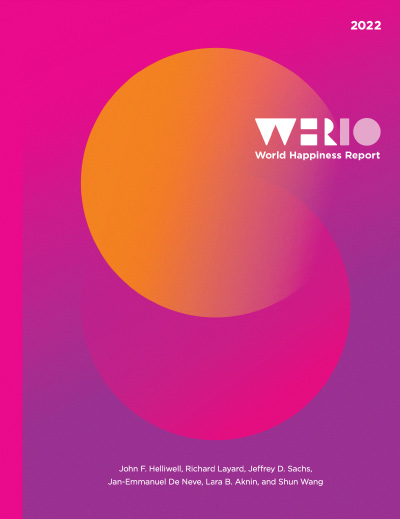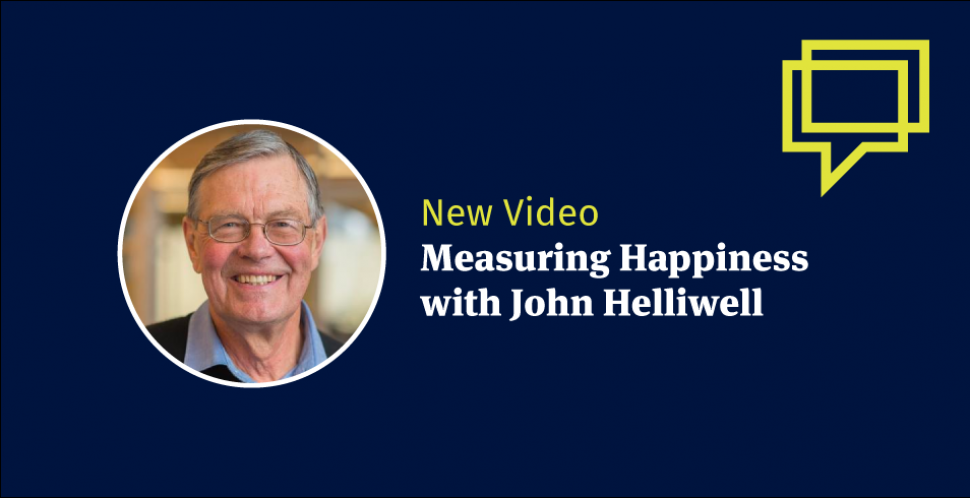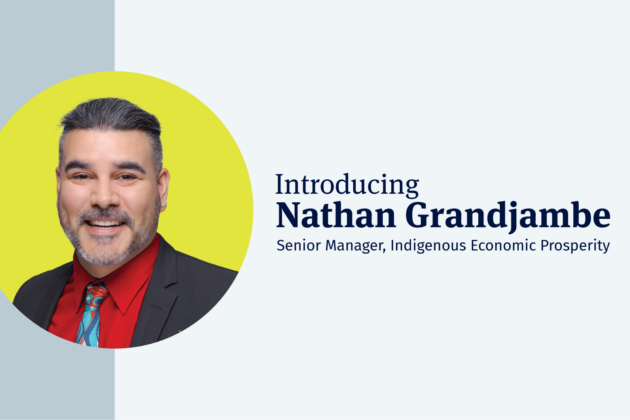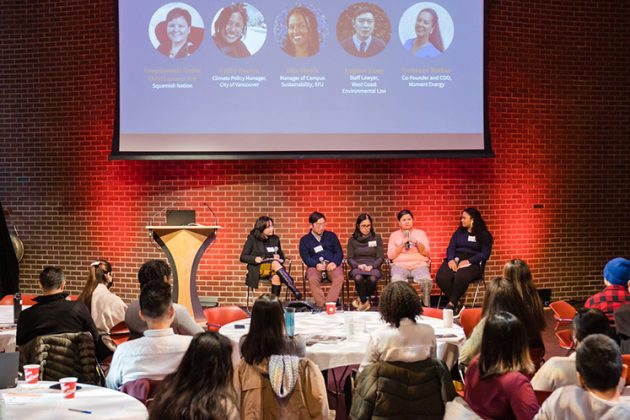Future-Proofing Vancouver: Beyond GDP and the World Happiness Report
The connection behind measuring happiness and the economy is simple: if the people living, working and connecting in our economy are not happy, can we really say our economy is a good one? Happiness is widely acknowledged as being one of the fundamental needs of all people, and although Vancouver regularly dominates global indices for liveability, our city is seldom represented on global rankings for happiness.
While Vancouver’s absence from these rankings is sometimes due to the lack of data and respondents in studies for those rankings, more could be done to prioritize both tracking and measuring happiness and other indicators related to economic health among the city’s residents.
As part of our “Beyond GDP” work, our senior manager of research James Raymond sat down with Dr. John Helliwell, one of the world’s foremost experts in happiness, to discuss what makes people happy, why we aren’t happier, and how we can act on these insights to shape a happier economy. Watch the video:
Video highlights: Measuring Happiness with John Helliwell
- Social context is crucial to happiness, and measures of trust, benevolence and inclusion are top factors in happiness. For instance, people are made extraordinarily happy knowing that they live in a community or neighbourhood where their wallet is likely to be returned
- The happiness of new arrivals in a community soon ends up matching that community’s level of happiness: levels of happiness are generally stable in local contexts
- People are more benevolent than we believe – the lack of belief in social benevolence curtails both a community’s and individual’s ability to be happy
- The kind of work we have, the relationships to coworkers, and the relationships we have to our jobs are all hugely influential to our happiness
- Having work that is purposeful, or finding purpose in work, is a key indicator that improves happiness
- If the goal is to create a happier economy, there are numerous existing community and public engagement channels that could be leveraged to improve, celebrate or reinforce the happiness of a community
For a quick read on why measuring happiness matters, refer to our 21st Century Economics: Measuring Happiness, which first appeared in the Spring 2022 edition of our Vancouver Economy Report.
The following is a recap of some of the highlighted themes of the conversation between James Raymond and John Helliwell. It has been simplified and, in some places, summarized for clarity.
“What makes a happy life? We don’t just want to know where people are happy. We want to know what makes them happy.”
 The World Happiness Report 2022
The World Happiness Report 2022Researchers generally measure subjective wellbeing based on people’s answers to a single question: how happy or satisfied are you with your life as a whole?
The very first World Happiness Report published insights based on the resulting responses from around the world. However, its writers noted that while readers were very interested in knowing how their country ranked, the question soon arose: what makes a happy life? “We don’t just want to know where people are happy,” said Helliwell. “We want to know what makes them happy.” In the nine reports since, researchers have modelled the differences across countries and through time.
The Reports confirm that income per capita and healthy life expectancy – two traditional development indicators – are indeed important contributors to happiness. However, the social contexts in which people live are together of equal or greater importance.
Social context is crucial to happiness
According to Helliwell, measures of trust, benevolence and inclusion are top factors in happiness, and all are shaped by the social context in which we live.
“Do you have someone to count on in times of trouble?” asked Helliwell. “Do you have a sense of freedom to make your key life decisions? Do you live in a generous society? Can the people around you be trusted? Answers to these four Gallup World Poll questions are always important in explaining how much people value their lives.
“How likely is your wallet or something of value to be returned if it was found by a stranger or a police officer, or a neighbour? That measure combines generosity, of course, and trustworthiness, because it makes people enormously happy to think of themselves as living in a place where their wallets would be returned.”
People are more benevolent than we believe – the lack of belief in social benevolence curtails both a community’s and individual’s ability to be happy
The rate of lost wallets returned by strangers is an important measure of benevolence in a society, and researchers using this study method have noted that people routinely underestimate that benevolence. “People in different countries have different views about whether [their wallets] would be returned, and across countries the correlation between expected and actual wallet return is quite high, thus validating the answers as reliable indicators of international differences in benevolence” commented Helliwell, “But people everywhere underestimate the generosity of others: the expected wallet return is a fraction as high as the actual wallet return.”
“Since your happiness depends on what you expect from your neighbours, this is an important gap in our knowledge,” he continued. “We need to be told and thereafter reminded that the social context is, in fact more supportive than we think it is.”
Helliwell hopes that broader knowledge of this fact could encourage people “to greet strangers with a smile and think of them as friends you haven’t met yet, rather than strangers who are likely to take advantage of you.”
“One thing we have found surprisingly large and widely spread in this year’s World Happiness Report is that in 2021, there has been a very large increase in benevolence,” he said. “Of course, the same thing that makes people reach out and help strangers, (which is the kind act that’s gone up fastest), or volunteer, or donate, is a desire to do things for others, to make their lives better.”
The happiness of new arrivals in a community soon ends up matching that community’s level of happiness: levels of happiness are generally stable in local contexts
Here’s a fascinating trend: studies show that the happiness levels of migrants quickly move toward those of the local population. “We found that migrants from up to 100 different countries that moved to either Canada or the United Kingdom (the two immigrant receiving countries with widely collected happiness data) reported life satisfaction levels that matched those of not just the country but even the province or region within the country” said Helliwell.
The local context in your city, in your town, in your neighbourhood, on your street, is critically important for your life evaluation and overall level of reported happiness and wellbeing. By sharing common objectives and by having social structures that are flat enough and equal enough that everyone feels engaged, empowered, involved, communities expose more possibilities to do things for others, thereby increasing the happiness of all.
The kind of work we have, the relationships to coworkers, and how we feel about the value of what we do are all highly important for happiness.
“One-third of one’s time is spent in a work environment,” observes Helliwell, “So [work] is very important, and we find that the social conditions in the workplace are of key importance.”
Workers who think of their work supervisors as a partner rather than a boss are not just happier with their jobs; they are also more satisfied with their lives. Studies also show that this could minimize or even eliminate the weekend effect – the early-week dip in worker mood after the weekend break relative to the generally elevated mood and wellbeing experienced at the close of work weeks.
The key to cultivating happy workforces is to create partnerships in workplaces, and to find or create purposeful jobs.
Having work that is purposeful, or finding purpose in work, is a key indicator that improves happiness, while arbitrary routines and guidelines can erode satisfaction in workplaces
Helliwell thinks that the greatest obstacles and pitfalls in achieving a purposeful job are “the blind acceptance of established rules and routines long after they have passed their best-before date.”
Workplaces could help by eliminating rote or arbitrary routines, help employees feel included and valued, and promoting schedules that enable better work–life balance while safeguarding time for people to connect and nurture relationships with loved ones.
If the goal is to create a happier economy, there are numerous existing community and public engagement channels that policymakers, planners and economic developers could leverage to improve, celebrate or reinforce the happiness of a community
Helliwell had examples ready. “The *311 line could be a line where people call to suggest what could be done to make [our city] better,” he said. “The UK opened up a line asking for volunteers to help people during COVID and they were inundated – their volunteer registers were overflowing after only a few days.”
“You want to have that happen in every community, in every neighbourhood. The possibilities are open-ended, as shown by surveys and examples of people’s capacity and willingness to work for each other and for their communities… cooperating to build a better community.”
“You’ll be astonished at the extent to which people have this untapped willingness to help others,” he concluded.



